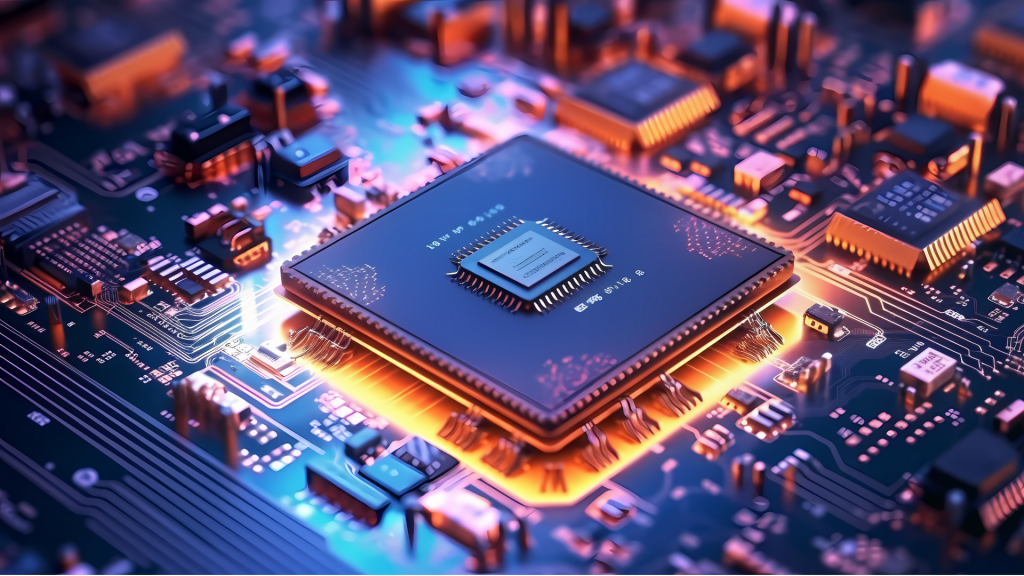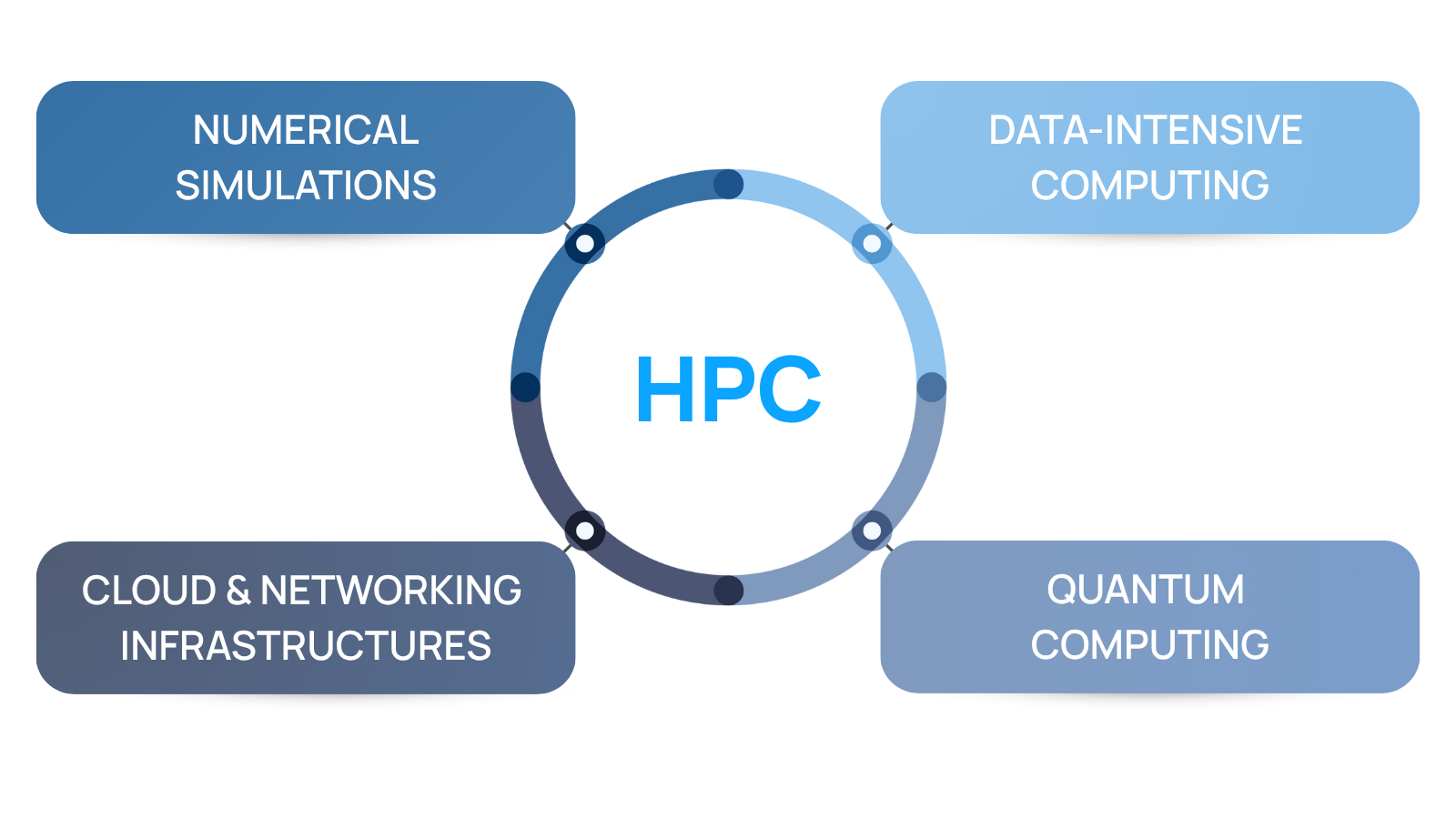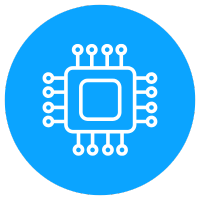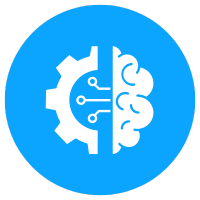The HPC Engineering study course is designed to equip you with the skills needed to tackle complex computational problems by combining knowledge from mathematics, computer science, and engineering. The curriculum places a strong emphasis on technological and scientific innovation, scalable solutions, and the multidisciplinary nature of real-world applications
The programme prepares you to design parallel applications based on mathematical and statistical models, to analyse large-scale complex data using the power of supercomputing, and to develop advanced solutions in the emerging field of quantum computing.
Throughout your studies, you will develop a broad set of integrated skills across key areas, enabling you to effectively address the challenges of High-Performance Computing.

A solid foundation in numerical methods for advanced simulations, with a focus on differential and discrete modelling, computational linear algebra, and numerical techniques for the discretisation and solution of partial differential equations, essential tools for describing and simulating complex physical phenomena.

Advanced skills in parallel and distributed programming, with in-depth knowledge of computational models, tools, and libraries for multicore CPUs, GPUs, and supercomputers in order to effectively leverage parallelism, reduce execution times, and tackle computationally intensive problems efficiently.

In-depth knowledge of advanced HPC architectures, ranging from vector and pipelined processors to heterogeneous systems with tensor accelerators and the latest quantum processors, enabling you to understand and exploit hardware features in the design of HPC software.

Advanced competencies in quantum computing developed through classes and projects focused on the design of algorithms and simulations on quantum systems. This specialisation area offers a comprehensive overview of quantum technologies that are reshaping the boundaries of computation.

Tools and techniques in deep learning and artificial intelligence for handling complex and unstructured data, supporting statistical analysis, predictive modelling, and the extraction of meaningful insights from large datasets. Recent advances in AI and its increasingly complex models rely heavily on the computational power of HPC systems

Direct exposure to multidisciplinary application domains, thanks to elective courses focused on various scientific and engineering fields (genomics, aerospace, energy, mechanics, finance…). In these areas, HPC enables the acceleration of complex data processing, enhancing simulation and numerical modelling in order to tackle real-scale problems
How is the study path structured?
The structure of the programme ensures a balanced integration of theory, hands-on practice, and project work, with a strong focus on developing skills that are immediately applicable in the job market or in advanced research settings.
The two-year and 120 ECTS structure allows for a coherent and gradual progression throughout the programme.
- The first year provides a comprehensive and integrated overview of the core tools and dimensions of HPC. You will build a solid foundation in key areas — from numerical methods and parallel programming to advanced computing architectures and infrastructures, including quantum computing.
- The second year focuses on thematic specialisation, direct engagement with HPC application domains, and the development of project-based autonomy. Thanks to a wide range of elective courses across various scientific and engineering fields, you can shape your study path according to your interests, career goals, or research ambitions.
Elective courses and thematic tracks
The highly multidisciplinary offering allows you to personalise your learning path — from deepening methodological knowledge to exploring real-world application domains.
You can tailor your study plan by focusing on the topics that interest you most. The programme offers a variety of possible thematic specialisations: you will have the flexibility to develop complementary skills in emerging or cross-disciplinary areas such as advanced numerical simulations, data-intensive computing, cloud & networking infrastructures, and quantum computing.

Within a complete study plan of 120 ECTS credits, you have 40 credits for elective courses and 20 ECTS credits allocated to the thesis project.
The recommended study plan distributes the 40 ECTS of elective courses according to the following indications:
10 CFU a scelta tra insegnamenti “affini” (matematica/statistica, elettronica, telecomunicazioni, tecnologie quantistiche): sono materie che approfondiscono aree complementari per potenziare le tue competenze in funzione degli interessi di specializzazione.
Questi crediti possono essere dedicati a insegnamenti nelle seguenti macroaree disciplinari:
10 ECTS in the field of computer science
20 ECTS in multidisciplinary applications
Areas of application include:
- aerospace, computational fluid dynamics, and mechanical engineering, focusing on the simulation of complex physical systems;
- energy modelling and sustainability, for the analysis and optimisation of energy and environmental systems;
- genomica e bioinformatica computazionale, dove l’HPC è essenziale per l’elaborazione e l’analisi di grandi moli di dati biologici;
- computational finance, for market scenario simulation, time series analysis, and risk assessment;
- computer science as an application domain of HPC, for example in the development and training of AI models, natural language processing, or hardware/software co-design in systems optimised for large-scale algorithm execution.
In all these contexts, HPC acts as a key enabler for compute-intensive applications that demand high processing power, parallelism, and scalability. Exposure to real-world application domains helps you consolidate methodological skills while tackling practical, complex problems.
Thesis Project and and Final Exam
The study path concludes with 20 ECTS credits dedicated to your thesis project, which can have an applied, innovative, or research-oriented focus.
It's an opportunity to apply the skills you’ve acquired to real-world problems and high-complexity challenges, contributing to innovative or research projects in the field of HPC.
Multidisciplinarity in action
Project-based activities integrated into the various courses are a distinctive feature of the HPC Engineering study course and play a key role both in the learning process and in the assessment. Throughout the two years, you will often work in teams with your peers on real-world problems or complex simulations, applying the skills and knowledge you have acquired.

A particularly enriching aspect of the HPCE programme is the diverse composition of both project teams and the class as a whole, bringing together students from a variety of backgrounds — such as mathematics, computer science, physics, and other engineering fields. This multidisciplinary environment allows you to share complementary skills and strengths, fostering peer-to-peer learning and the development of effective teamwork. You will learn to communicate across disciplines and collaborate in interdisciplinary settings — essential skills for both research and industry.
But it's not just about lectures and exams!
At Politecnico di Milano, there are numerous Student Associations, many of which include IT divisions and, in some cases, teams dedicated to HPC, numerical simulation, or the management of intensive computational workloads.
Taking part in the life of these associations is a concrete opportunity to apply your HPC skills in extracurricular projects, collaborate with students from other degree programmes on shared goals, and interact with professionals in the field. It's an experience that enriches your academic journey and opens up new professional opportunities!







